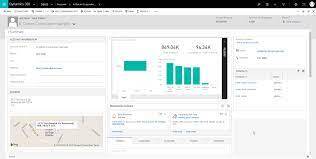- 1-800-761-8017
- Contact Us
- Member Login
- Get Listed Today

More and more companies are combining Microsoft Dynamics 365 Sales with Dynamics 365 Business Central Implementation , but does it make sense?
Since the optimized integration of the two products has enabled reliable synchronization, the answer to this question can definitely be yes.
For example, the combination of CRM and ERP solution enables sales staff to link information from both services, such as accounts receivable, contacts or sales information. While working with Microsoft Dynamics 365 Sales, you can retrieve data in Business Central and vice versa. The synchronization also keeps the information up-to-date in both applications.
This offers a lot of advantages. For example, sales can call up price lists and customer statistics from Business Central directly in Dynamics 365 Sales or get an overview of whether sufficient stock is available. Another advantage is the comparison between offers, orders and invoices. The sales process starts in Dynamics 365 Sales with an offer and then transfers to Business Central for goods planning and billing. Invoices, sales and balances of your customers as well as the amounts of all open items (payment behavior) can be viewed directly in Dynamics 365 Sales.
Apart from that, both products can score hugely in their own terrain.
At the end of the day, it always comes down to where your focus is. Anyone who is already using an ERP solution usually wants to optimize the sales process, which can be easily implemented with Dynamics 365 Sales. Anyone who is already using Dynamics 365 Sales would like to optimize payment transactions or financial accounting.
If you have any questions about how to optimally link back and front offices, we would be happy to help.
Login or Register to Start Chatting |
-(2).png)